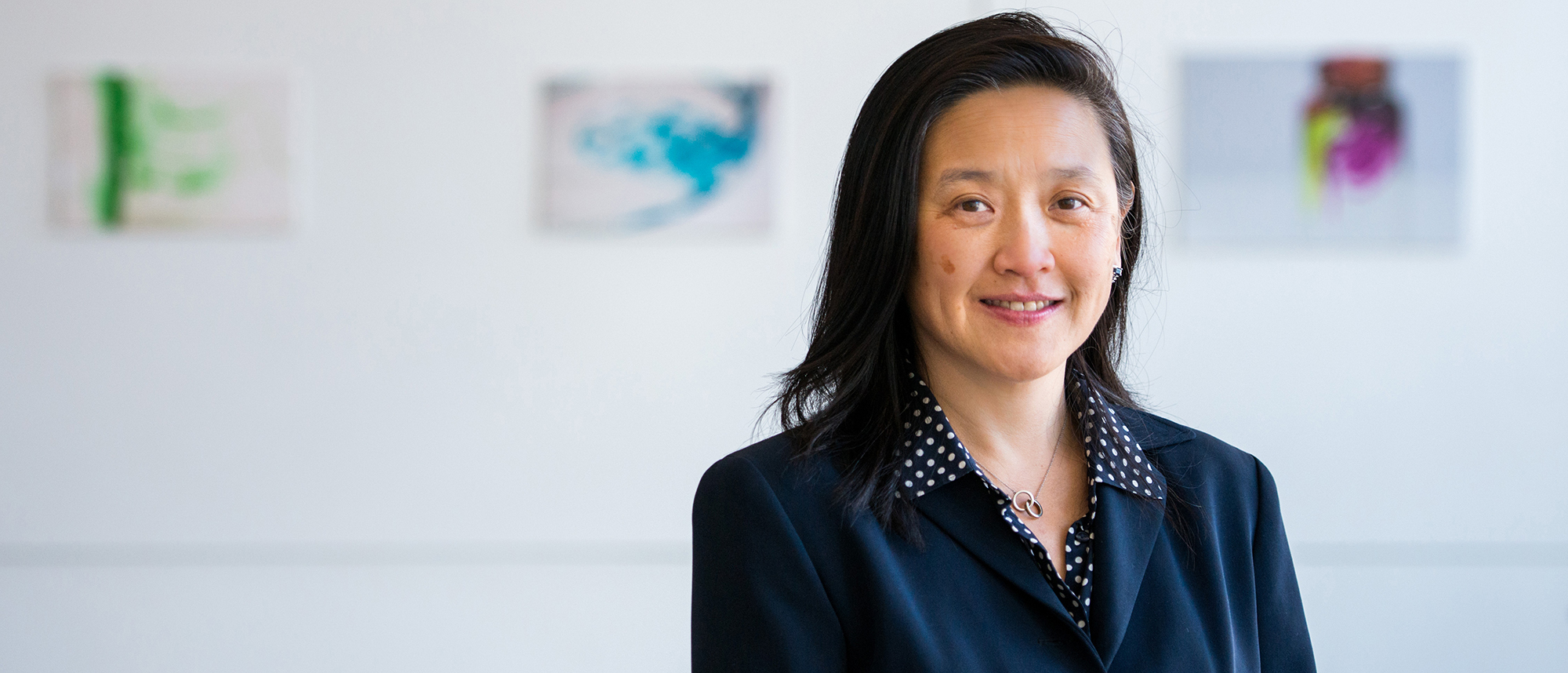
Ka Yee C. Lee, provost and David Lee Shillinglaw Distinguished Service Professor in the Department of Chemistry, the James Franck Institute, the Institute for Biophysical Dynamics, and the College. (Photography by Jean Lachat)
Before becoming the chief academic officer this year, chemist Ka Yee C. Lee served in many faculty and leadership positions.
My first six months as provost have been anything but typical. During that time, a global pandemic required the University of Chicago community to quickly move our entire academic and research enterprise to operate in a remote fashion, and our city and country have been enveloped in protests as we debate what it means to be a more just society.
Nothing could have prepared me for this unprecedented time, but my experiences as a longtime member of the University community have shaped my understanding of this moment.
Growing up in Hong Kong, I was drawn to the American education system since my first visit in 1976, which eventually led me to the United States for my academic pursuits. I received my bachelor of science degree in electrical engineering from Brown University and my master of science and PhD degrees in applied physics from Harvard University. I did my postdoctoral work at Stanford University and the University of California, Santa Barbara. Throughout my training, I had mentors who provided me with important research experiences and helped me discover my passion for teaching.
I joined the University of Chicago as a chemistry professor more than two decades ago, and the faculty role continues to be central to my identity. One of the things I value most as a professor is engaging bold and innovative thinkers, helping them gain a deeper understanding of complex subjects and consider their application in today’s world. At our university, where education is grounded in rigorous inquiry and free debate, the classroom experience isn’t intended to teach students what to think, but rather how to ask questions and have their own ideas challenged to deepen their knowledge.
That spirit of questioning is just as present in the laboratory, my second home at the University. My lab carries out fundamental studies on the interactions between lipids and proteins, seeking to bring a greater understanding of how these interactions are responsible for normal physiological functions, and of diseases that are the result of deficient or abnormal lipid-protein interactions, such as respiratory distress syndrome and Parkinson’s disease. This work means that we are constantly pushing the boundary of our current understanding, which in turn propels us to devise new methodologies and innovative ways to probe the scientific questions at hand.
On the administrative side, I served as vice provost for research and led the University’s activities and partnerships in Hong Kong for several years, including the opening of The Hong Kong Jockey Club University of Chicago Academic Complex | The University of Chicago Francis and Rose Yuen Campus in Hong Kong. The second role was a homecoming for me, and both opportunities allowed me to gain insight into different aspects of the University that would prove critical as provost.
As the chief academic officer and leader of the annual budget process, I have witnessed firsthand the immense partnerships and fortitude it has taken across campus to adapt courses and adjust resources due to COVID-19.While we have had to change the way we work and interact, this time of uncertainty has revealed even more of who we are—a resilient and supportive intellectual community that can rise to any challenge.
